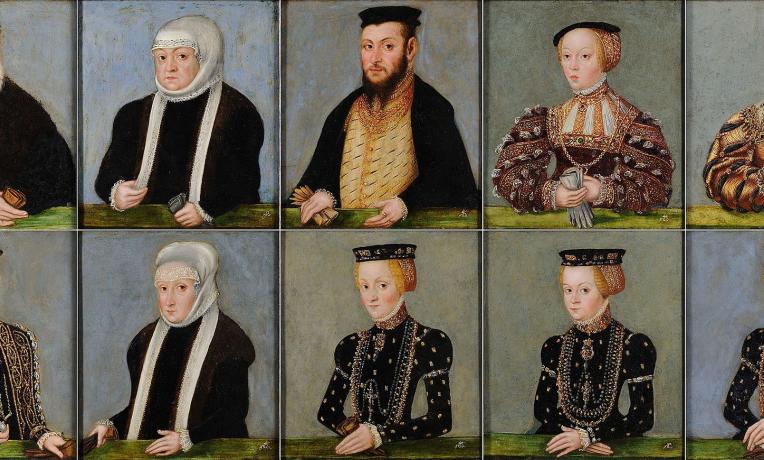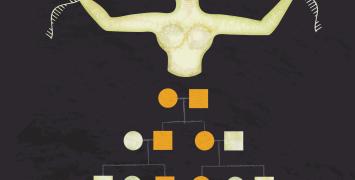Same past, different histories: Remembering the Jagiellonians across Europe
When you think of the Renaissance period in Europe, what springs to mind? Perhaps the Medici family in Italy where the Renaissance is said to have begun, or the discovery of the ‘New World’ by Europeans like Christopher Columbus or Abel Tasman. But have you heard of the Jagiellonians?

Your answer will depend on where you are based in Europe: from Poland where the Jagiellonians are celebrated as a powerful dynasty, to the Baltics where they are sometimes seen as betrayers of local pagan heritage, to the UK where knowledge about their 300-year, Renaissance-period reign is only just beginning to emerge.
Under a project funded by the European Research Council, Dr. Natalia Nowakowska, Professor of European History at the University of Oxford, is exploring how European Renaissance history is perceived and remembered differently across Europe through the lens of the Jagiellonian dynasty. Working across Lithuania, Ukraine, Russia, Germany, Hungary, Poland and the UK, Natalia and her team of five post-doctoral researchers conducted an analysis of the Jagiellonians – who ruled central Europe between 1386 and 1596 – transcending different disciplines including art history, anthropology and political history. They scrutinised a vast array of materials – everything from medieval texts, novels from the 18th and 19th centuries, royal letters and family portraits to recent political speeches, royal wedding re-enactments and the current popular interest in Jagiellonian queens portrayed in historical novels in Poland and ballet productions in Lithuania.
There are long-standing differences in how European history is remembered in Western, Central and Eastern European countries, which undermines our understanding of European history and our perception of Europe today, she says The project discovered that there is an almost non-existent memory of the Jagiellonians in Western European countries, while in Central and Eastern Europe they are remembered in highly polarised ways. This can be seen in Poland, where many towns have statues honouring Jagiellonian kings and queens, as opposed to in Hungary, where they are held responsible for the defeat at the 1526 Battle of Mohács – a memory on display at the Mohács National Memorial Park. In Lithuania, where they are viewed as betrayers of local pagan heritage, there are modern statues of pagan grand dukes in the capital Vilnius, but not of Jogaila – the king of Lithuania – who converted to Catholicism and founded the Jagiellonian dynasty.
Under the project we developed a very rich sense of who the Jagiellonians were and how they are remembered. We wrote books about them touching on their reach – which extended from their territories in modern Eastern Europe to their interactions with the Ottomans and Tartars. They were the last great, native royal dynasty of East-Central Europe, ending in the 16th century when the male line gradually died out, says Natalia.
Dr Natalia Nowakowska introducing her ERC research project which examined the Renaissance Europe Jagiellonian dynasty (2014).
The metahistorical narrative compiled through the project challenges the Western European perspective that Eastern Europe was largely a backwater or ‘hanger-on’ during the Renaissance, while Western Europe was the birthplace of modernity and capitalism. This perception is far from the reality of the time. Our ideas of an East-West European divide are actually quite new and only became dominant from the 18th century onwards, she adds.The inspiration for Natalia’s research comes from her dual cultural background. She was raised in London where she went to Polish Saturday school and learnt about the Jagiellonian’s great political force. Meanwhile, at her British weekday school, they were never mentioned.
Before our project the majority of people in Western Europe had never heard of the Jagiellonians. Now they are increasingly being discussed by scholars – we’re helping to shift the centre of gravity in our understanding of Europe during the Renaissance, Natalia says.
The ERC-funded project held a public exhibition at the Bodleian Libraries in Oxford and has published a series of essays and books on the cultural memory of the Jagiellonians.
Biography:
Natalia Nowakowska is Professor of European History at the University of Oxford. She was born in London in the Polish diaspora community, and completed her undergraduate degree and doctorate at Lincoln College, Oxford. Following post-doctoral positions at King’s College London, and University College Oxford, Natalia was elected to a History Fellowship at Somerville College, Oxford, in 2006. She is interested in new ways of thinking about the history of Europe and its neighbours in the Renaissance period, which better integrate the histories of Central and Eastern Europe. Her first book, Church, State and Dynasty in Renaissance Poland: the Career of Cardinal Fryderyk Jagiellon (1468-1503) (2007) was co-winner of the Kulczycki Prize in the USA, and was also published in Polish translation. She has recently completed a new study of the early Reformation in the Polish monarchy, published by Oxford University Press, entitled King Sigismund of Poland and Martin Luther: the Reformation before Confessionalization (2018). In 2012, she was awarded an ERC Starting Grant for the project Jagiellonians: Dynasty, Memory and Identity in Central Europe. The project’s first book, Remembering the Jagiellonians, was published in 2019. This is a collection of essays comparing long-term cultural memory of this royal house across Central, Eastern and Northern Europe. Two more books arising directly from the ERC Starting Grant are also forthcoming. Natalia has recently lectured on the Jagiellonians in Budapest, Cambridge and Lviv.






